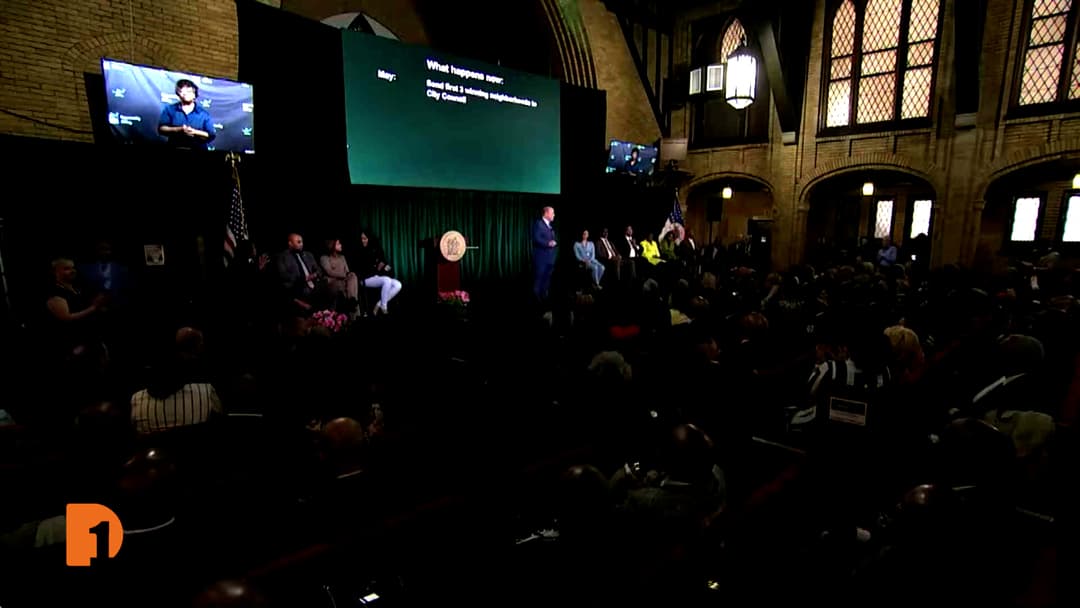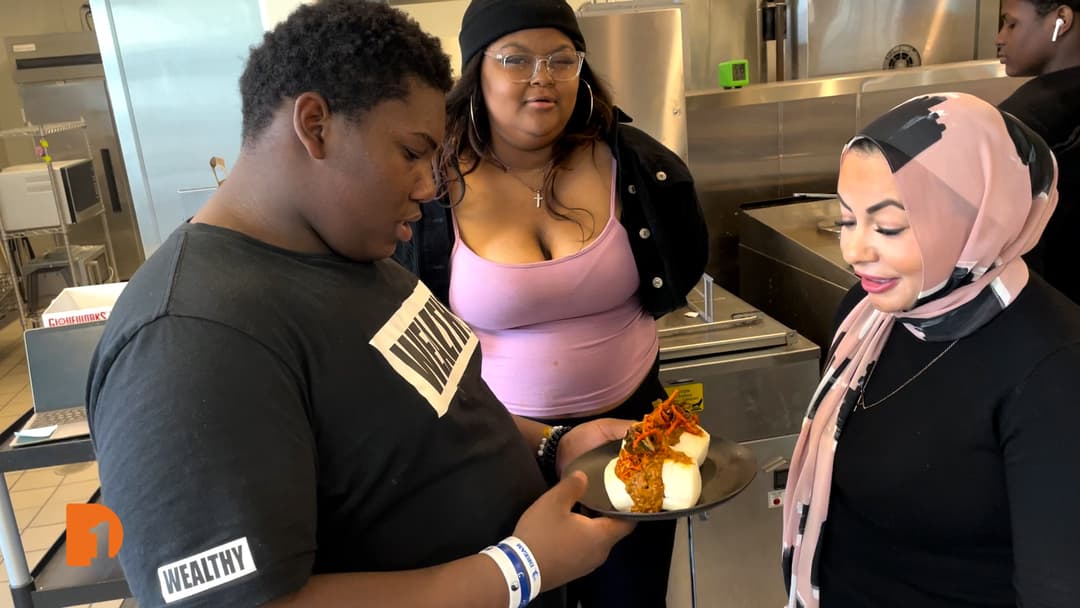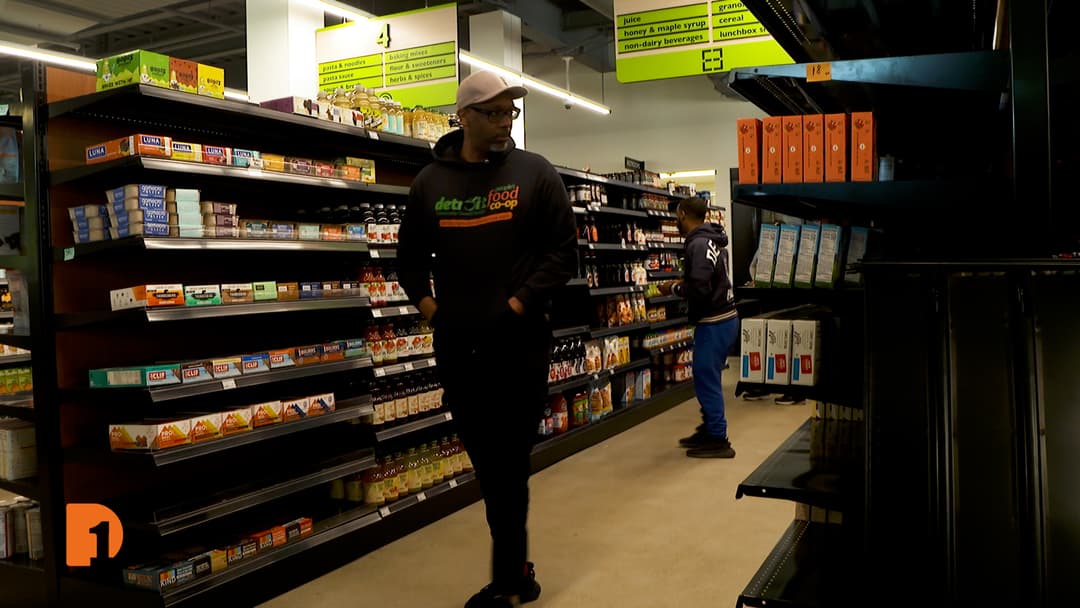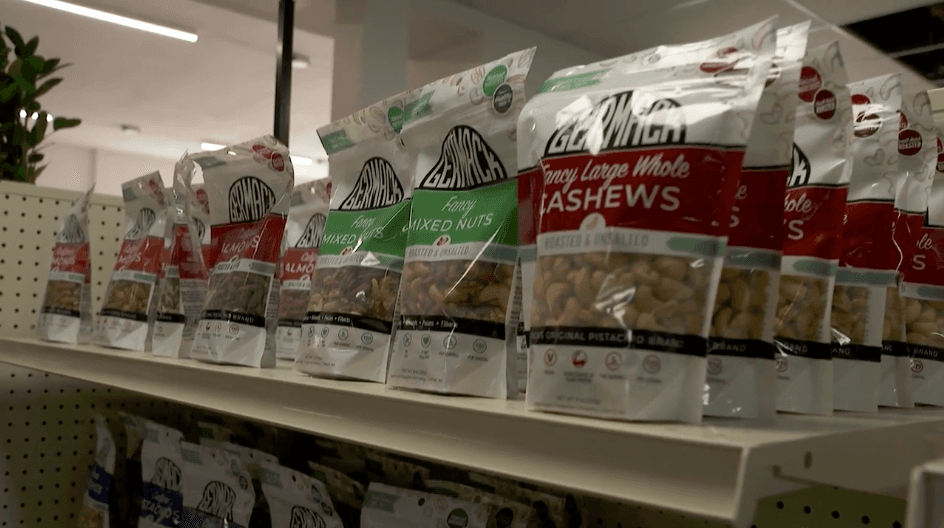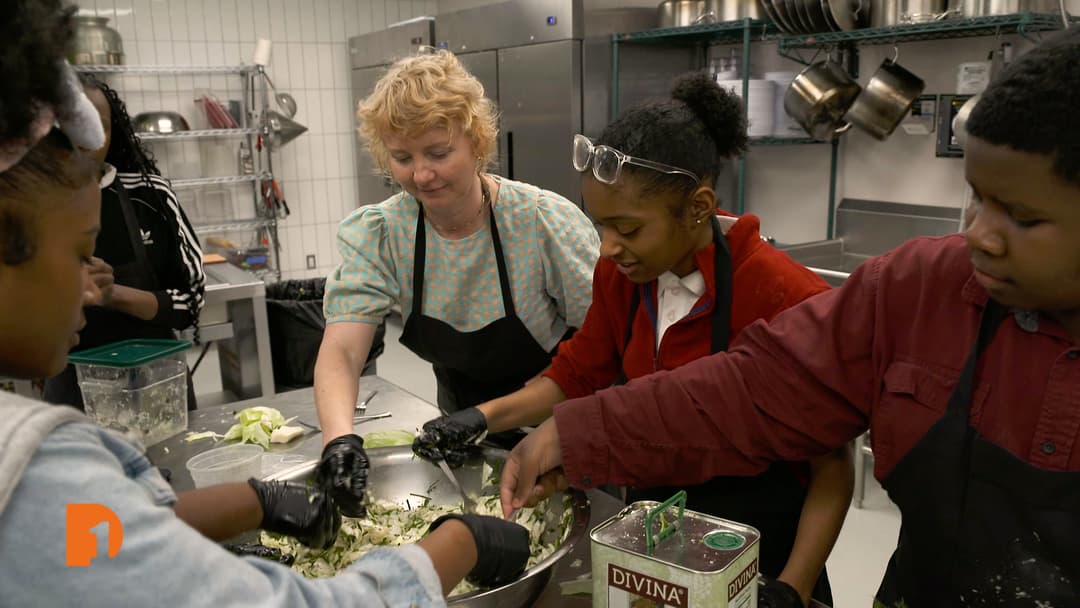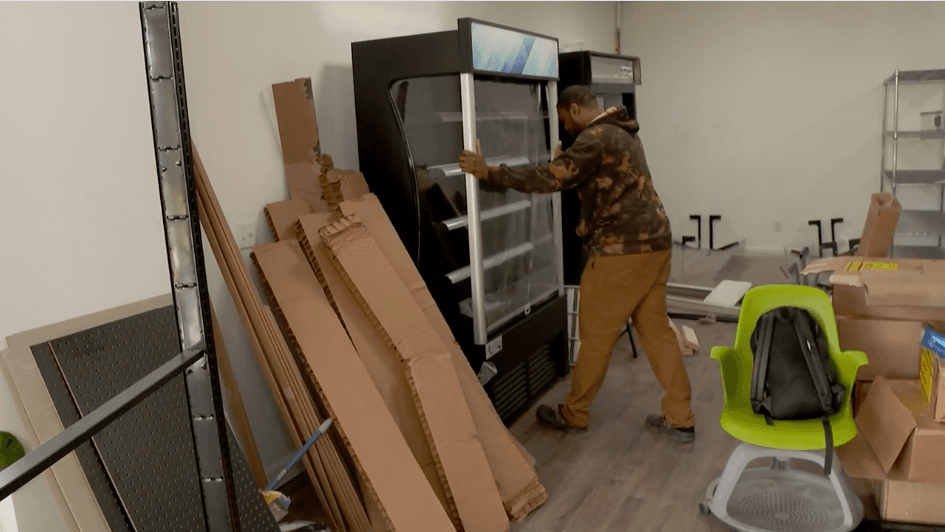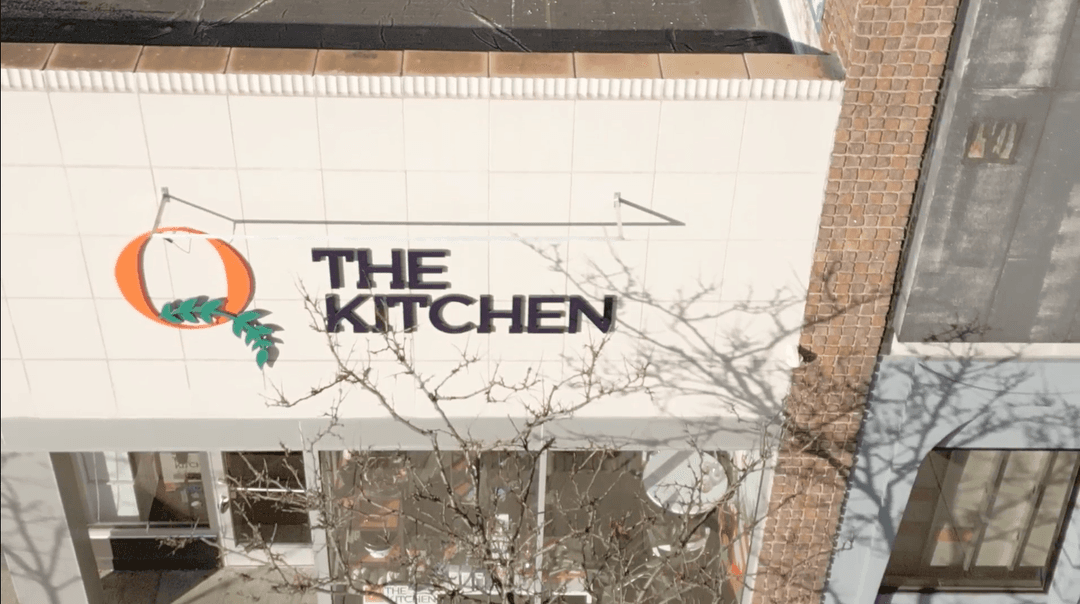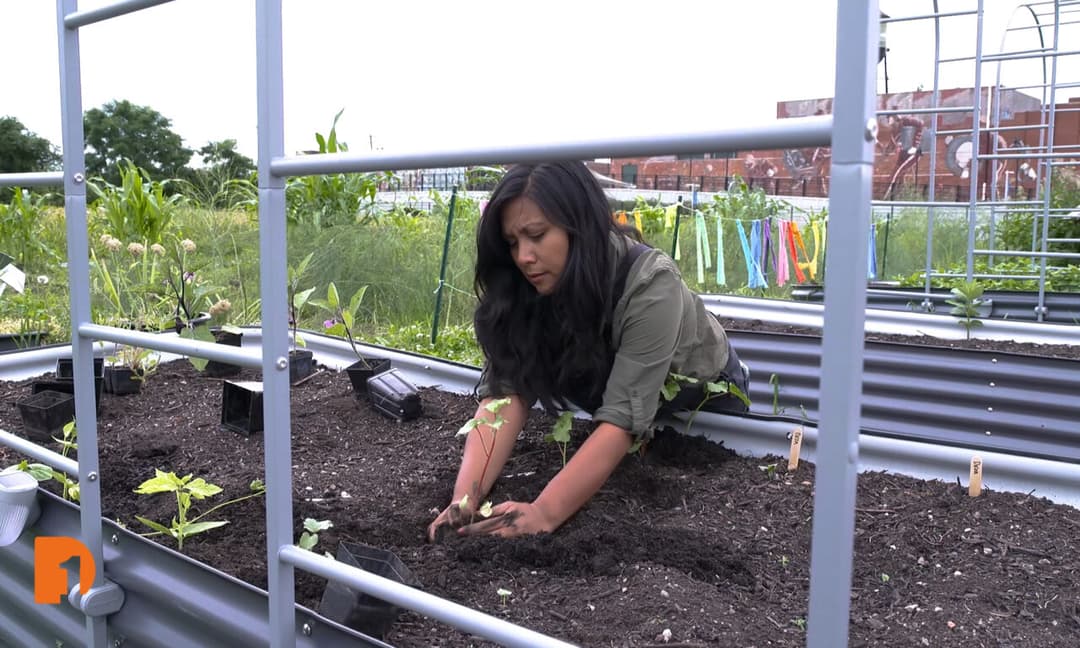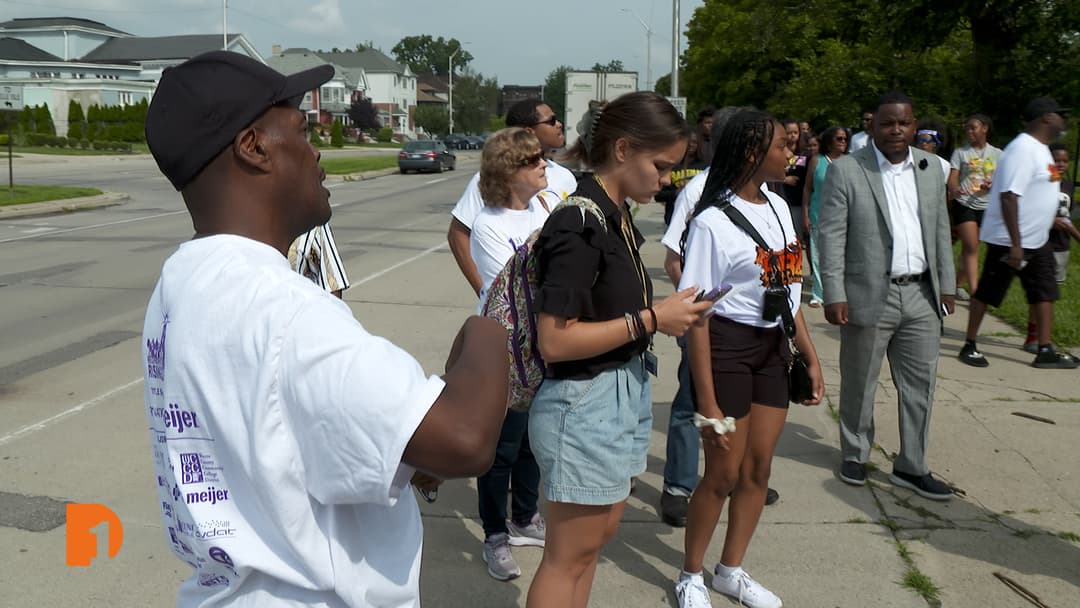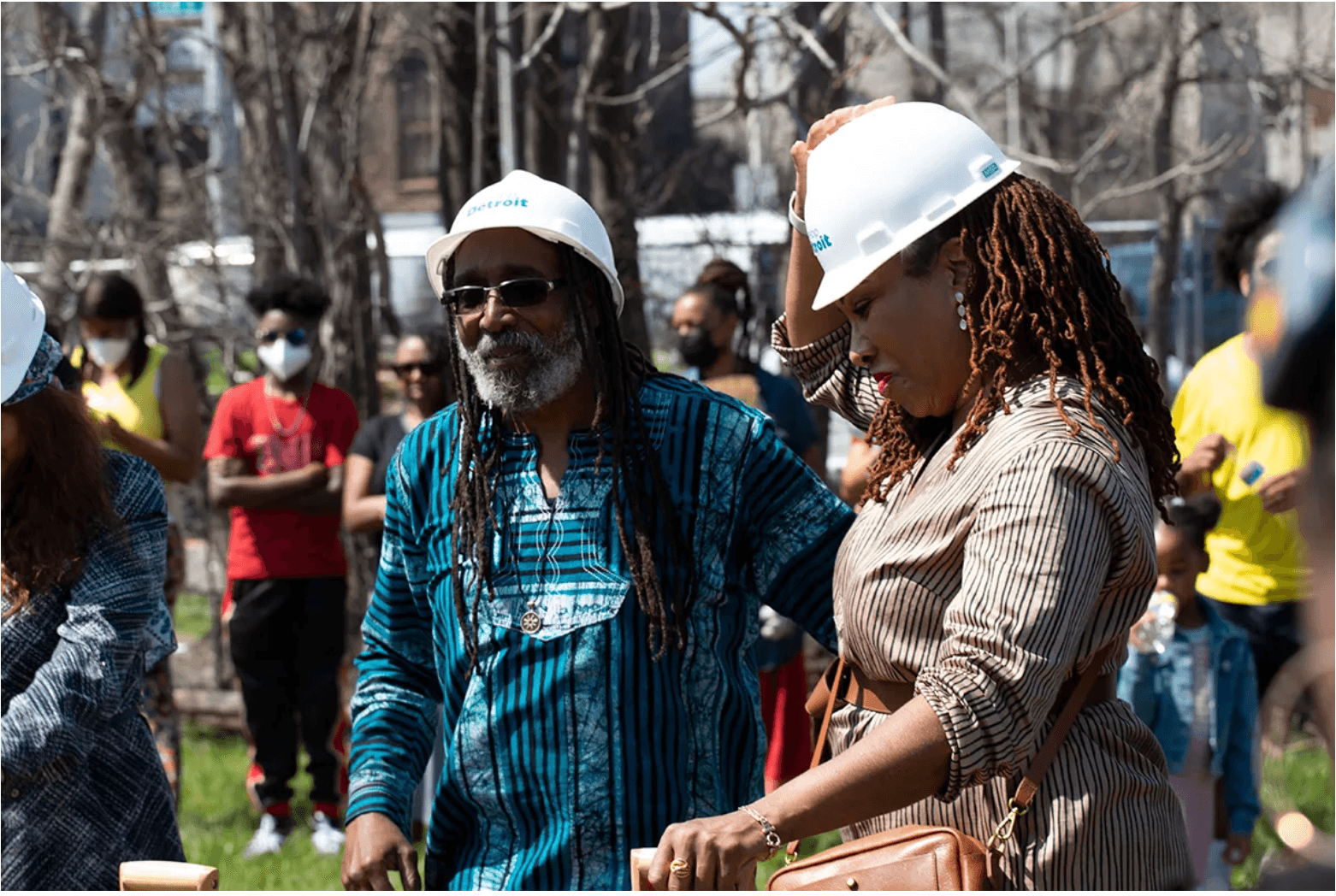
BridgeDetroit | People’s Food Co-op Rewrites Economics in Detroit Grocery Battle
Apr 27, 2022
Photo Caption Malik Yakini, executive director and co-founder of the Detroit Black Community Food Security Network and Develop Detroit President Sonya Mays take part in a groundbreaking for the Detroit People’s Food Co-op, part of the $21.3 million Detroit Food Commons project in the city’s North End. | Photo provided by Khary Frazier
By Jena Brooker, BridgeDetroit
After more than a decade of visioning and organizing, Black leaders and community members have broken ground on a cooperatively owned full-service grocery store in the city’s North End.
The Detroit People’s Food Co-op will be part of the larger Detroit Food Commons, a Black-led community development complex on Woodward Avenue expected to include an incubator kitchen for culinary artists and food entrepreneurs, a West African and Detroit-centric healthy foods cafe and will have space for community meetings and events, lectures, films, and performances.
RELATED: Detroit chefs support city and celebrate legacy of Black food
RELATED: Network of neighbors plan to provide food, resources to community members beyond pandemic
The project, spearheaded by the Detroit Black Community Food Security Network, seeks to expand access to healthy foods for a predominantly Black and low-income community where residents also face concerns of gentrification and displacement.
Despite a nearly 80% Black population, Detroit lacks Black-owned grocery stores. While the Detroit People’s Food Co-op will be open to the public and anyone of any race can be involved, it is a primarily Black-led initiative.
Malik Yakini, the network’s executive director and co-founder, grounded the group’s Saturday groundbreaking in the context of white supremacy and inequity.
“In the face of these kinds of oppressive systems, cooperative economics is the way that people who are marginalized by the larger society galvanize our collective wealth and rebuild our communities,” said Yakini, of the coalition working to build an equitable food system in Detroit.
Construction on the $21.3 million Detroit Food Commons will take a little over a year, with an anticipated completion date of June 2023.
“The Detroit Food Commons and the Detroit People’s Food Co-op is most significant when it is linked to ending the extraction of wealth, and the suppression of the power of Black communities throughout the United States,” he added. “It pushes back gently – it doesn’t destroy capitalism.”
Even within a co-op, he said, there’s still capitalism, but at least at the retail level community members can own the store they’re purchasing from, and the store will be connected with local growers in Detroit.
“We’re trying to kind of create a closed-loop system … keeping the money from those sales circulating within our community,” he said.
A 2012 study by the Fair Food Network found that Detroiters spend an average of $200 million annually on groceries in the suburbs, due to a lack of grocery stores in the city, generally, and a lack of quality, nutritious and culturally appropriate foods offered at Detroit grocers.
The grocery store in the North End will be collectively owned and governed by its members who pay a one-time fee of $200. In exchange, members receive a vote in board elections, share of future profits, and they can run to be a board member themselves.
Yakini announced Saturday that the Detroit Black Community Food Security Network will be changing its name to the Detroit Black Community Food Sovereignty Network. Compared to “food security” the phrase “food sovereignty” highlights ownership over the social and political processes of our food systems.
The project, he added, is significant because it’s led by “a grassroots Black food sovereignty network,” including a nonprofit development company led by a Black woman, two Black architectural firms, a Black construction company and a Black general contractor.
Sonya Mays, president and chief executive officer of Develop Detroit, the organization partnering with the network to create the space, told BridgeDetroit that “We do see cooperative and collective ownership as an important strategy in neighborhoods like this to keep homes affordable, to keep the character of the community more intact.”
But most people aren’t familiar with cooperative ownership, she noted, and Mays hopes that the DPFC will be a good, clear example of how these kinds of developments can work.
[button link=”https://www.bridgedetroit.com/peoples-food-co-op-rewrites-economics-in-detroit-grocery-battle/” color=”orange” newwindow=”yes”] Continue Story
Subscribe to One Detroit’s YouTube Channel & Don’t miss One Detroit Mondays and Thursdays at 7:30 p.m. on Detroit PBS, WTVS-Channel 56.
Catch the daily conversations on our website, Facebook, Twitter @DPTVOneDetroit, and Instagram @One.Detroit
View Past Episodes >
Watch One Detroit every Monday and Thursday at 7:30 p.m. ET on Detroit Public TV on Detroit Public TV, WTVS-Channel 56.
Stay Connected
Subscribe to One Detroit’s YouTube Channel and don’t miss One Detroit on Thursdays at 7:30 p.m. and Sundays at 9 a.m. on Detroit PBS, WTVS-Channel 56.
Catch the daily conversations on our website, Facebook, Twitter @OneDetroit_PBS, and Instagram @One.Detroit
Related Posts
Leave a Reply
Your email address will not be published. Required fields are marked*


